A lot of folks are dreaming of making the switch from a modern lifestyle to off-grid living. In fact, more and more people are looking to buy land to build a new life, searching for freedom and independence in a rural environment.
Preppers are perhaps more inclined toward this change since emergency preparedness and survivalism don’t go well with a large population density and the dependence on public utilities.
However, besides the challenges one has to face when embarking on such a journey, like finding the right piece of land and obtaining the finances to purchase the land, there are other less obvious things one needs to prepare for.
For example, hot water is one of the core requirements of our modern lifestyle, and nothing beats a hot shower after a hard day’s work. Having access to hot water not only helps you maintain good personal hygiene but can also provide a morale boost during hardship when you just wish to wash the day away with a hot bath.
In today’s article, we will look at how those wishing to live off the grid can obtain hot water for their household, and hopefully, it will help folks out there better plan and prepare before making the move to an off-grid lifestyle.
The Need for Water
Living in the middle of nowhere becomes tedious without a reliable source of water for washing and bathing. Long before you figure out ways to obtain hot water, you need to start thinking about how you can obtain water in the first place.
In fact, a lot of people will have to dig a well just to obtain water since not every off-the-grid property may have access to a lake or river. And let’s say you do manage to obtain the water, then you would need to figure out how to store that water in a convenient way so that it’s always close to home and accessible.
Some may use a solar pump to draw water from their well, while others will be able to improvise all sorts of rain-catching systems or put together a gravity water distribution system if their geographical location allows it.
So the bottom line is you need to have access to a water source, and you need to be able to collect and store the water so that it can be conveniently heated depending on your needs. After that, you will have plenty of time to worry about which of the following options you will use to heat the water for your needs.
Solutions to Obtain Hot Water
Before the arrival of power grids, people had a limited amount of hot water, and the activities in their household that required hot water were significantly restricted because they had to constantly use resources such as coal and wood for water heating.
Yet surprisingly, with all the technological advancements we have today, some of the methods our ancestors used for heating water are being redesigned and adapted to our modern homes. Let’s look at both old and new solutions we could use for an off-the-grid household to obtain water.
Wood Stove Water Heater
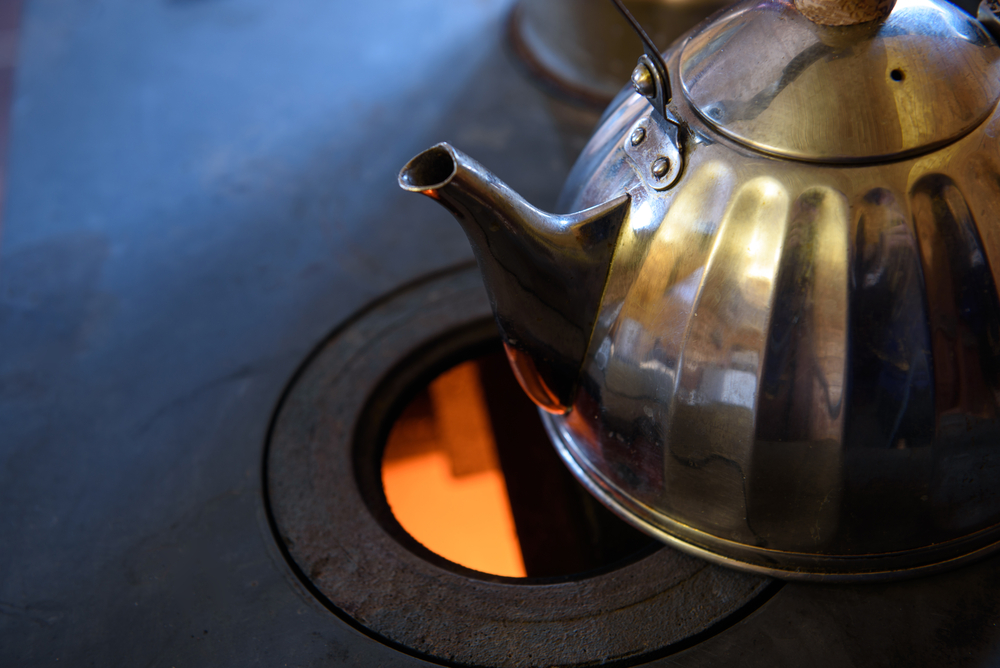
Wood fire stoves are still popular, and they are successfully being used in remote locations to obtain heat and hot water by using self-made or modern technology. Although wood stoves can help you obtain hot water, one of their drawbacks is that they cannot provide the quantity of hot water that modern homes require.
Woodstoves were primarily used to heat water for bathing and for washing dishes, and they did require a learning curve since you had to know how much water can you heat, how long it takes, and how much of that water you would need to use for various activities.
If you’re lucky, you can find some old stoves that incorporate factory-made water heaters, but they are becoming a rarity and are quite expensive. For example, standalone wood-fired water heaters are no longer produced in North America. There are, however, models being produced in Mexico and Europe, and you may find some used models now and then.
Another alternative would be to buy a wood-fired water heater like the one being used by the Amish community. The Lehman’s Catalog can help you get your hands on one, but keep in mind that these are in high demand and are often out of stock.
For heating large quantities of water to cover the needs of a conventional modern home, you can try your luck with some wood-fired appliances from Karhu or TimberLine Wood Water Stoves since they have various products manufactured in stainless steel.
Solar Units
Solar water heaters have become popular in the last decades, and they are an established presence in the American market. People are buying kits, or they are buying individual parts to bring all sorts of DIY projects to life.
In its simplest form, such a DIY project would incorporate a coil of black plastic pipe on the roof of your home, which could provide enough water for bathing and cleaning. However, the supply of hot water may be limited by the daylight hours and climate, and you would also need to install a storage tank.
For example, in countries with no real winters, most homes have large PE water tanks installed on the roofs, and with a pipe system, they feed these tanks with water from various sources. An additional pipe system where gravity does all the work helps transport the water inside their homes. The sun heats the water tanks all day, and they have plenty of hot water when needed, including at night.
While the above-mentioned solution is perhaps the cheapest one, it’s also a rudimentary one compared to commercial solar water heaters. Such heaters employ a variety of technologies to ensure proper water circulation and storage, and are also protected against freezing. The price of such a system can range from $2,000 to more than $10,000, depending on the technology it uses, size, and volume of hot water it can provide.
Such an investment can be eventually paid back in some parts of the country with energy rebates and tax credits.
There are basic standalone solar hot-water units that you could buy for less than $500, and there are units that incorporate solar panels as well, but as you can imagine, these are much more expensive. Also, it’s important to note that dedicated solar water heaters usually take less roof space than systems incorporating solar panels.
Using Natural Gas
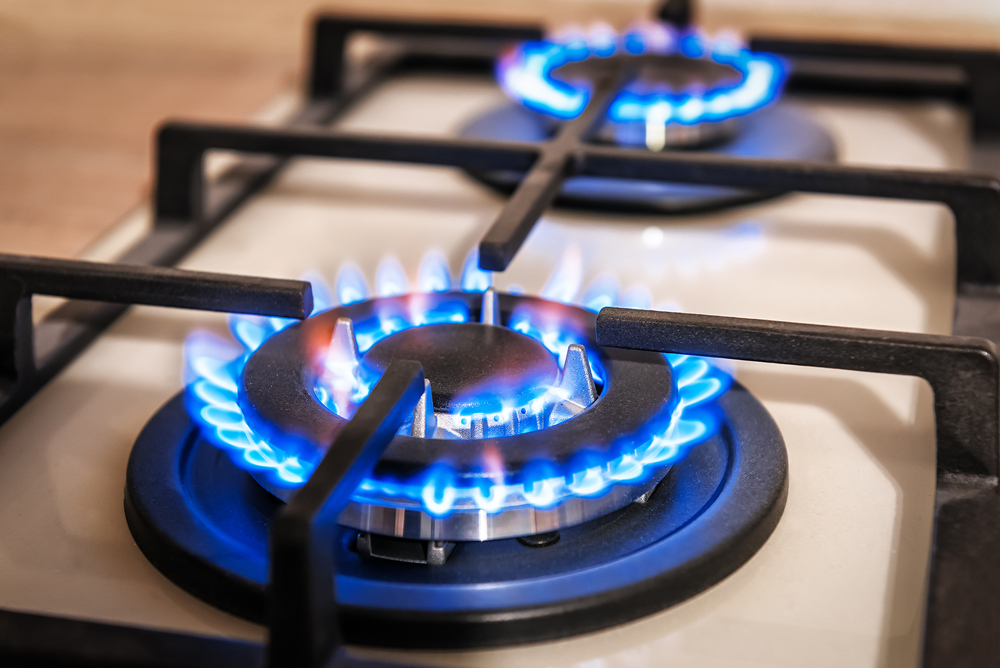
For decades, natural gas has been the resource/fuel of choice for many folks when installing hot-water heaters. The low prices of natural gas have pushed this trend, but it seems that electricity, especially the one generated by solar power, is replacing natural gas, and it’s starting to dominate the market.
Some may favor on-demand (tankless) heaters, and it seems that this is the fastest growing segment for tiny homes, mobile homes, and RVs. Such water heaters can be found at big-box retailers, and the prices are driving down since there’s a lot of competition in the selling market. Others may find reassurance in a standard system that includes a water tank.
Both of these systems can be used successfully in any type of environment because they have built-in electric anti-freezing elements. However, keep in mind that some of these do require power to function. They require electricity to ignite the heat source, so no power means no hot water either.
Both the standard and tankless systems can be fueled by various gas sources, but the two major types are LPG (liquefied petroleum gas) like propane or butane and natural gas. You could convert the system to use different gasses, but this requires different pressure regulators and orifices, and you need to know what you’re doing to avoid putting your family at risk.
Some will use natural gas to obtain hot water for their off-grid homes because the fuel price and the cost associated with heating water are often lower than that of electricity obtained from the grid. In some countries, LNG (liquefied natural gas) is used since it’s cheaper and safer than propane or butane. Unfortunately, LNG-fuel water heaters are not available in the US.
Using Fuel Oil
Another alternative some folks use for home heating and hot water is fuel oil or home heating oil. Fuel oil is a well-known standard, and the technology is dependable for off-grid applications. Sometimes biodiesel alternatives are also available.
However, the cost associated with home heating oil for the average home is similar to the electricity from the grid or natural gas. You also need to have an on-site tank installed, and these can be filled only by local and regional delivery services, which is an added expense.
Some folks prefer furnaces and water heaters running on fuel oil mainly due to environmental concerns since the latest models are cleaner and run more efficiently. Personally, I believe the costs of installing, maintaining, and running water heaters that run on fuel oil are much higher compared to the other options listed in this article.
Even so, it’s a matter of perspective because not everyone living off the grid is a prepper that seeks complete independence and self-sufficiency.
Concluding
The hot water needs of an off-grid home depend on where the household is located and how the owners make use of it. If you are looking to become self-sufficient and never again have to rely on others to obtain a certain level of comfort, then going with wood or solar water heaters is the way to go.
However, if you are the type of person that moved outside the city, in a modern off-grid home, one that challenges the actual definition of off-the-grid living and practices, then the other options listed in this article may be more suited for your needs and budget.
As said previously, it is mainly a matter of perspective, and your off-grid lifestyle may be quite different than what others are imagining.


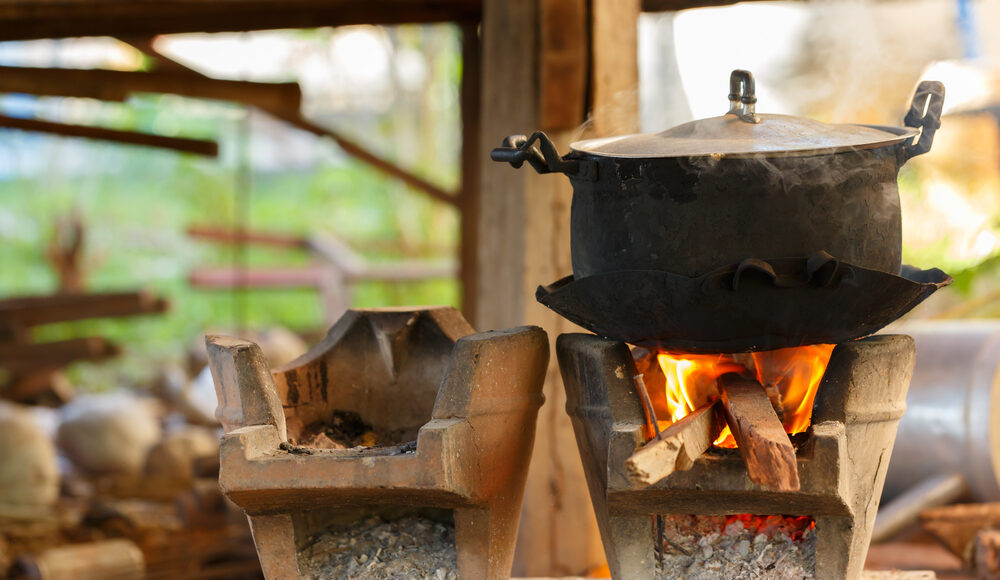



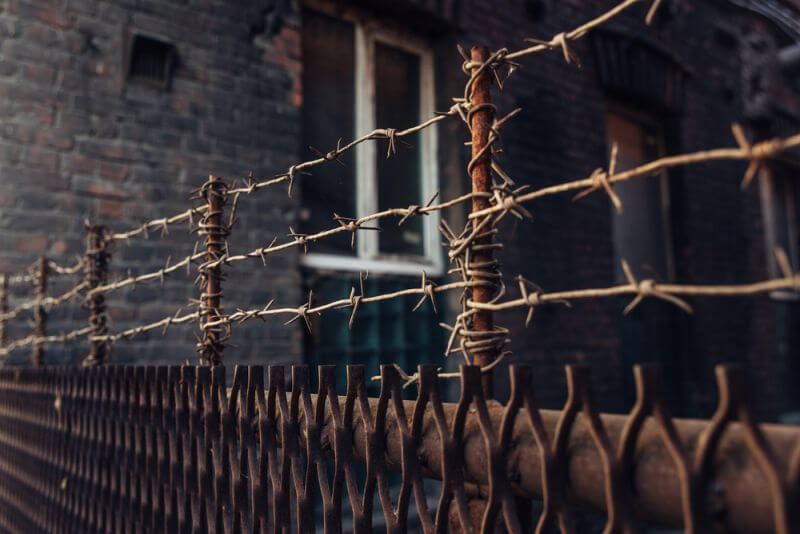
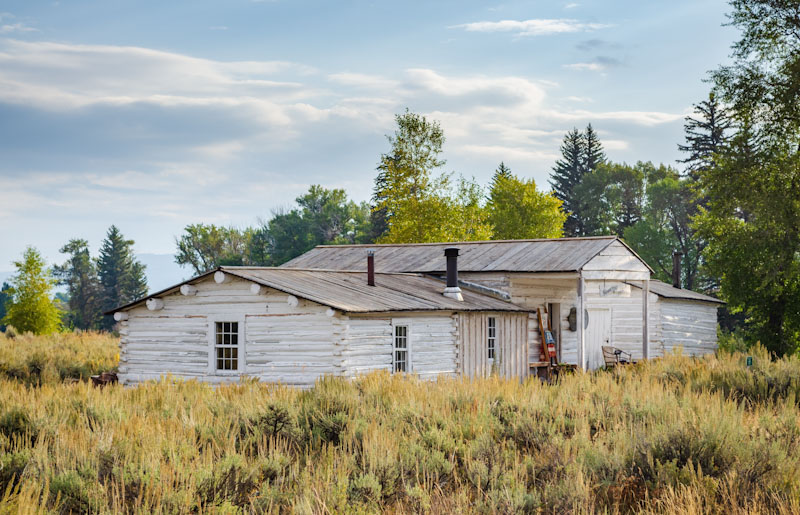
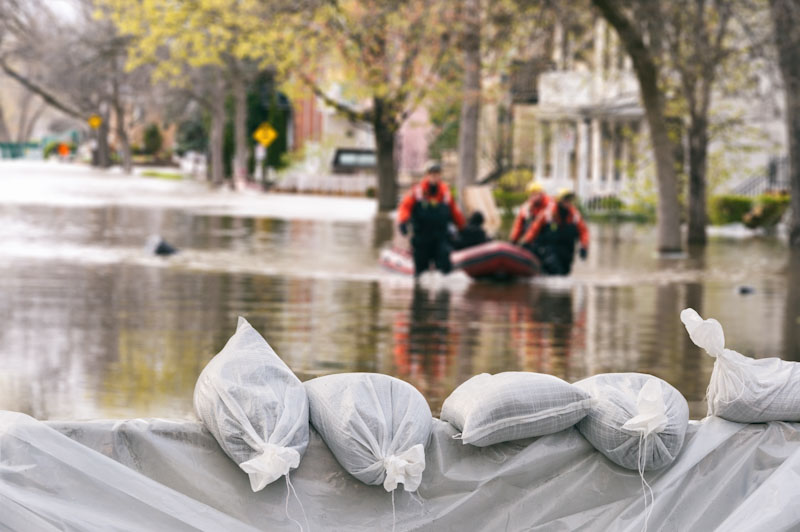


louis richardson | February 14, 2023
|
while LNG water heaters are not avalible in the USA,, VNG (vapor natural gas) water heaters are every where in the oil states,OK,TX and louisiana..
Mark S. | February 14, 2023
|
Where is the info on those concrete rochet stove stands in the opening picture? More info please!
bonita | March 6, 2023
|
So I was fortunate to see a setup that was a woodstove box that had the water pipe running threw it as the fire box was loaded and roaring with a nice warm fire and this water circulated threw the water pipe and was hooked to the faucet of the tube along with a cold water facet as well to be able to adjust the water temp. This system was gravity fed to the tub but the hot water line was slowly circulated and heated for 30 minutes prior to bathing and it was very efficient for bathing for summer time there was an outdoor shower and the water tank was black and naturally heated by the tiny water pump that pushed the water threw black hoses and again circulated and a plain transparent water barrel full of unheated water for temp regulation to keep from getting bunt. please remember to always start the cold water first and slowly add the hot water to ensure nobody gets burnt.